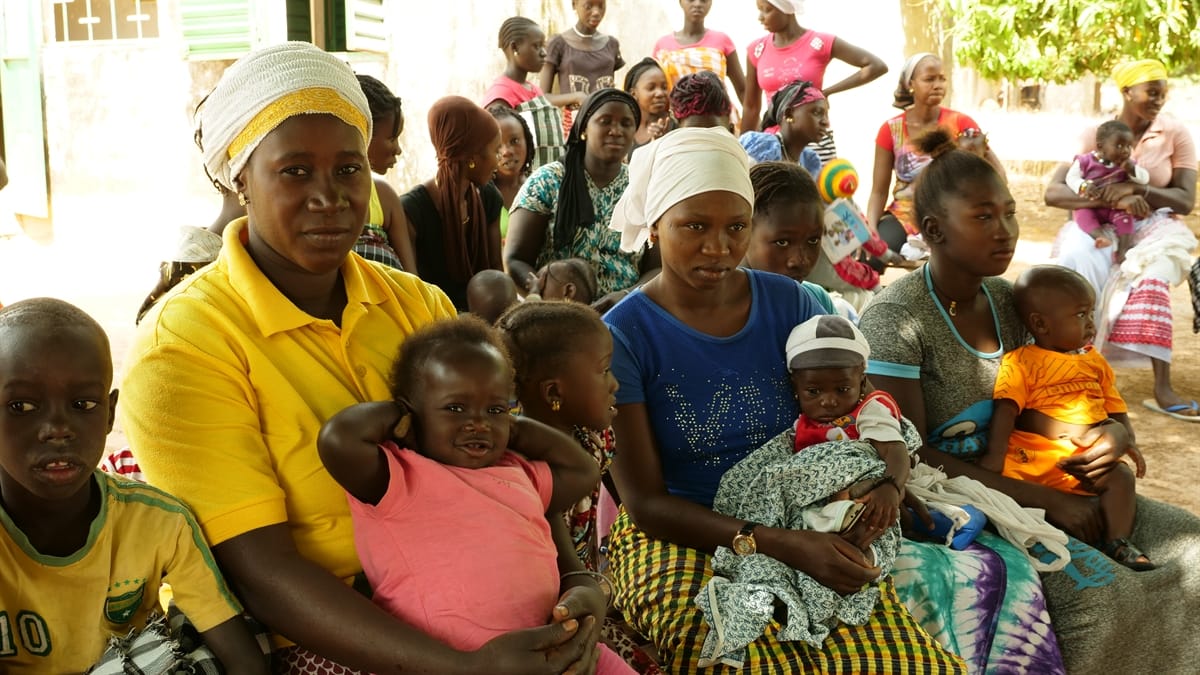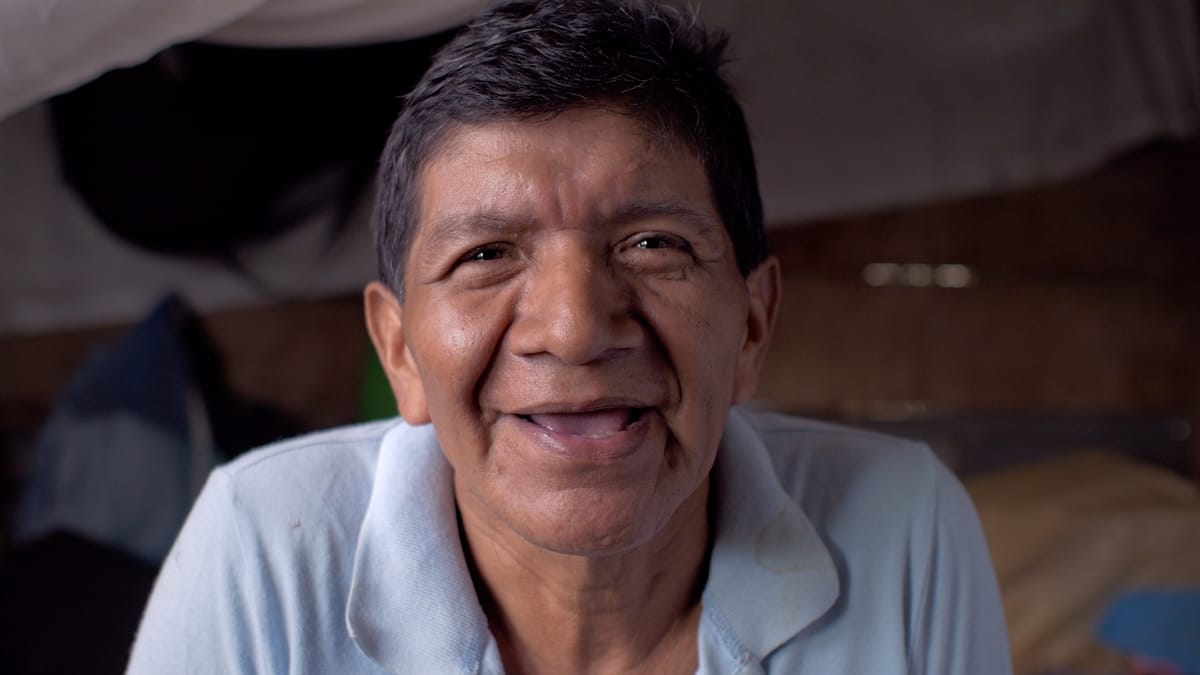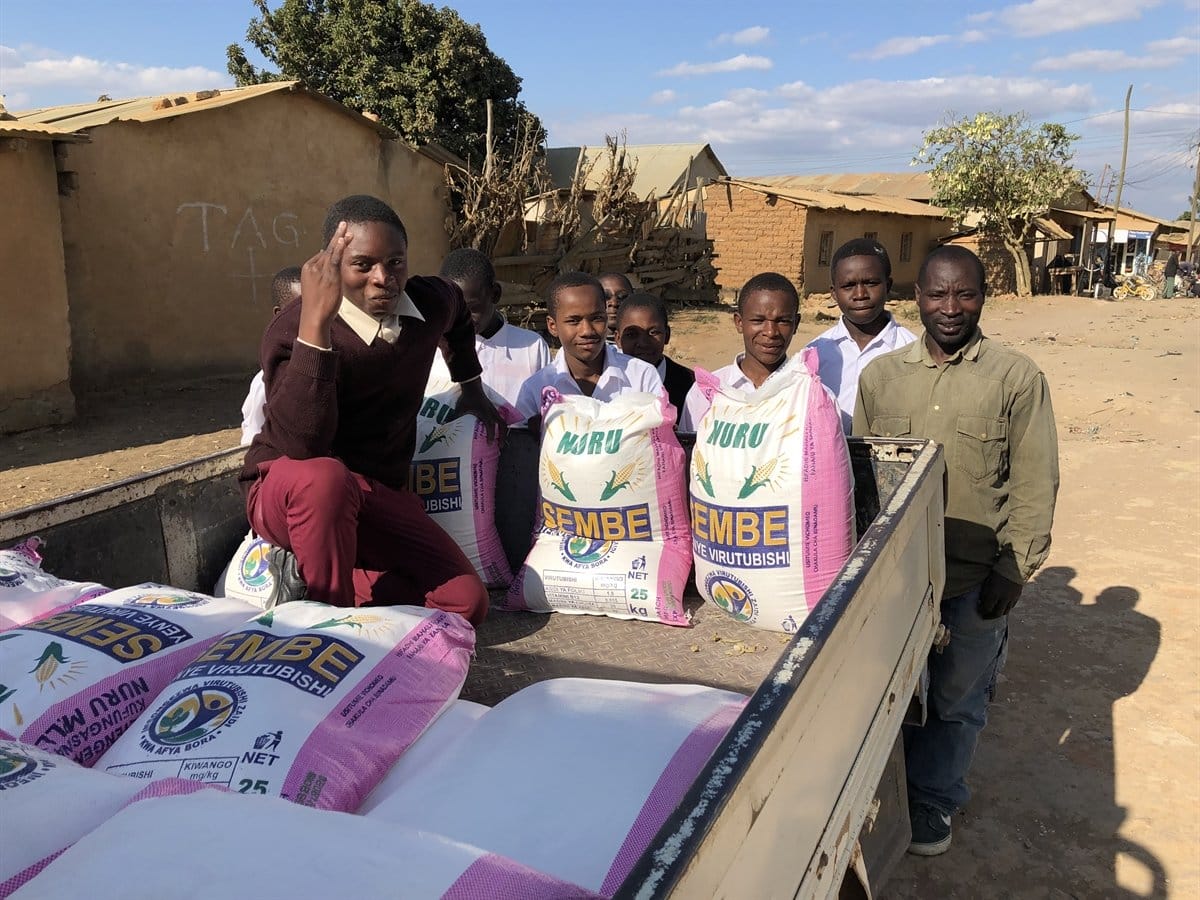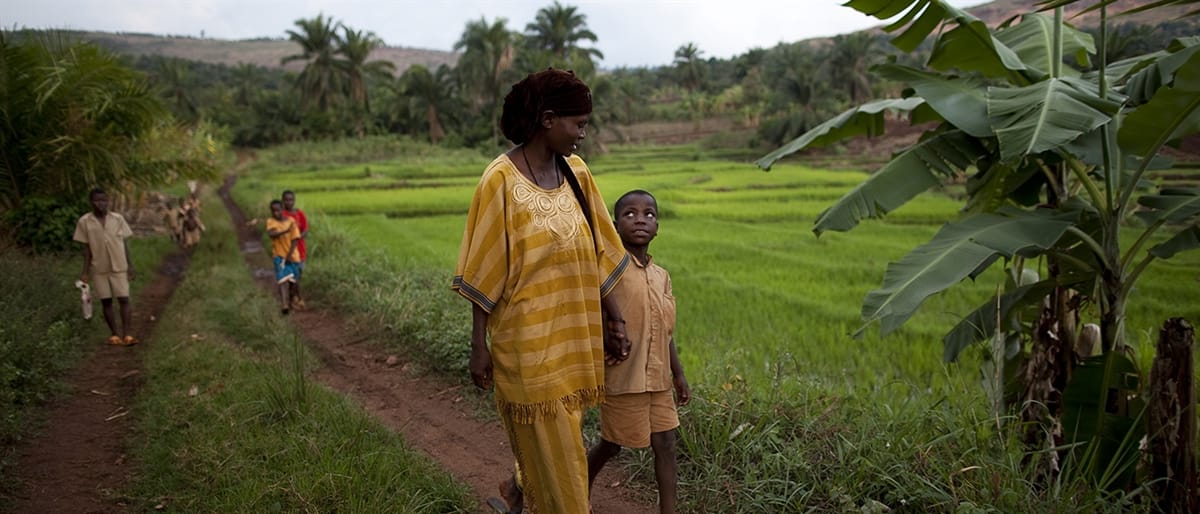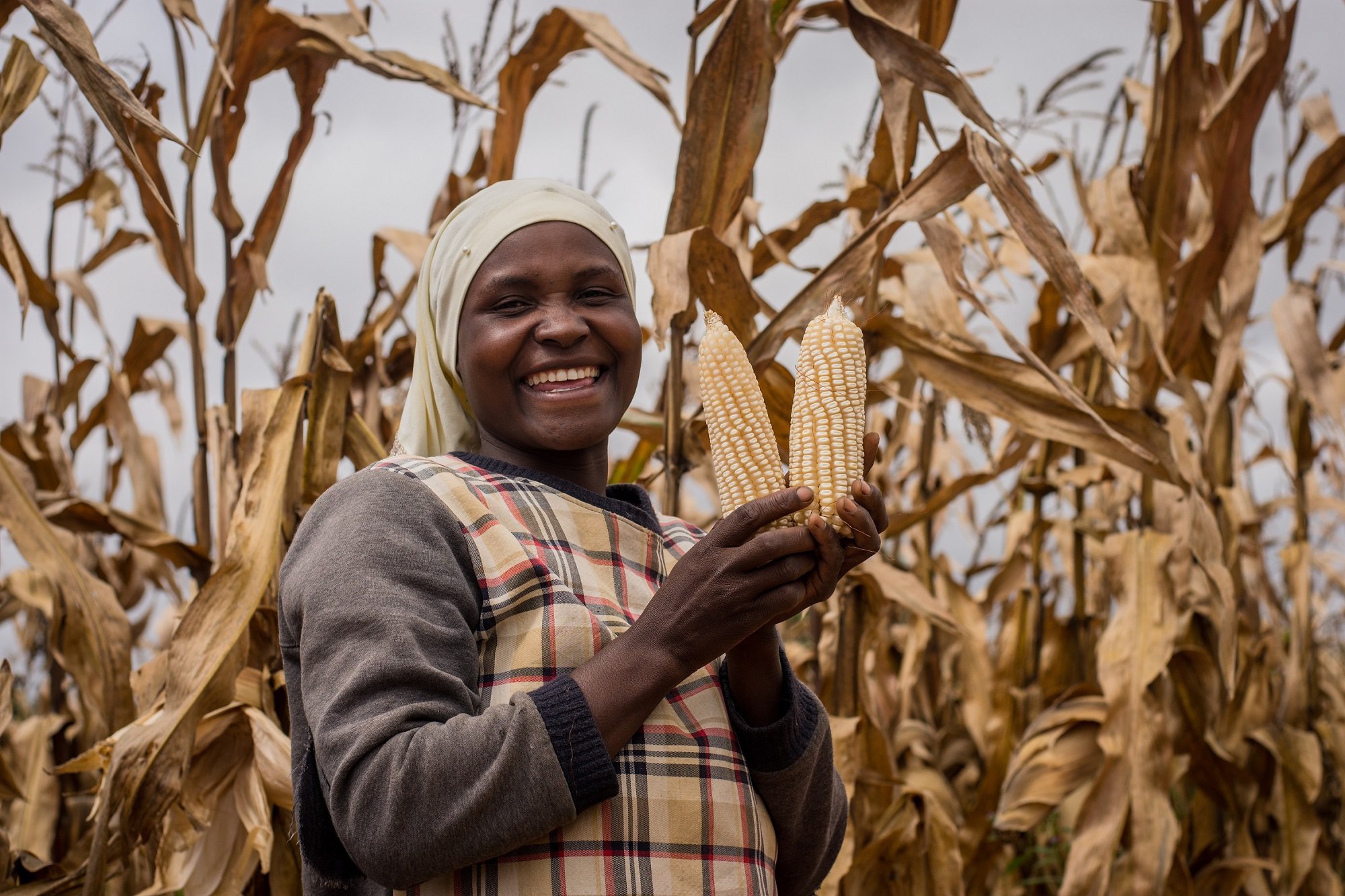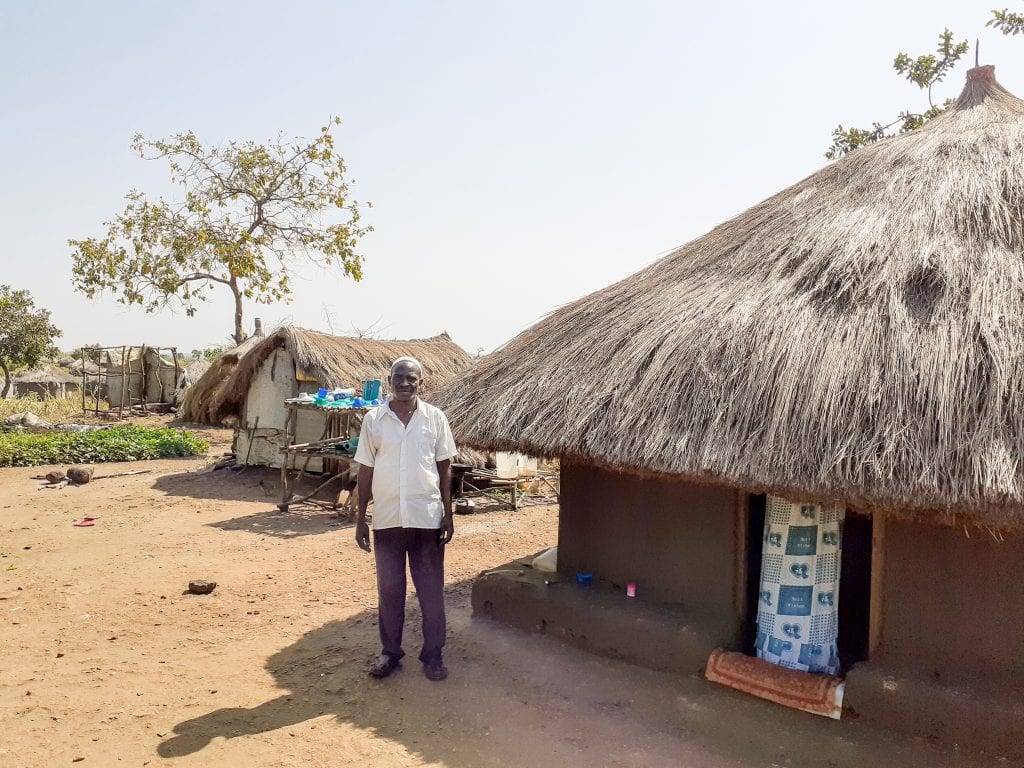In the verdant Casamance area of Senegal, the March nights can be cool but the days are decidedly hot. Still, from 8:30 in the morning until 2 in the afternoon, a steady stream of

Madelene Sadio has returned to her community as a health worker to share information and life-saving treatments with mothers and children.
mothers and their children arrived at the health hut in Kolane, a village of about 1,400 people, and waited in the shade of a tree for their turn to see a contingent of community health workers. The workers visit Kolane once a month to weigh the children, assess them for malnutrition, and give them Vitamin A supplementation (VAS) and deworming pills as needed.
One of the health workers, Madelene Sadio, lives in the village; the women assembled at the health hut are her friends and neighbors. Though her own children are now grown, she recalled being a young mother in need of the same health care services these women now seek. Because she grew up in the bigger community of Sinbandi Balante and profited from a more extensive education than most women here ever receive, she learned the importance of immunizations and check-ups. She does this work to help the women in Kolane gain the same knowledge and access the same care that she had.

Sadio gently squeezes a dose of the liquid vitamin A supplement, proven to help prevent blindness, into each child’s mouth.
“I saw that women in this village were giving birth at home and the children were not getting their immunizations,” Sadio said. “I received training so that I can sensitize women to the importance of giving birth in health facilities and getting pre- and post-natal consultations, as well as the need to bring children to be weighed and vaccinated.”
Through a program implemented by Helen Keller International and partners, Sadio received the education and developed the skills that allow her to effectively communicate with her peers and deliver vital interventions like VAS. By supporting front-line health workers like Sadio and partnering with governments to deliver VAS, Helen Keller is helping to strengthen and expand access to the health system in Senegal. The direct result is the improved nutritional status of women and children.
Sadio’s role during the S.P.C. visit (Suivi et Promotion de la Croissance, or Tracking and Promotion of Growth) was to administer deworming tablets, as well as VAS to any child from six months to five years of age who hadn’t received a dose of this critical immunity-strengthening vitamin for at least six months. While the mothers held their sometimes squirming, sometimes crying children, Sadio gently squeezed the children’s cheeks and expertly dropped a dose of the liquid supplement into each child’s mouth.
In Senegal, both parasitic infections and Vitamin A deficiency are common conditions. The former is a major factor in the country’s high rates of anemia and malnutrition, while the latter is the leading cause of preventable blindness in children and increases the risk of death from severe infections. Coupling the administration of a deworming pill, which safely and effectively kills intestinal parasites, with a dose of Vitamin A supplementation (VAS), which strengthens vision and the immune system, increases the uptake and effectiveness of both interventions, with remarkable impact on children’s health and nutrition status.
Out of thirty-seven children who were seen by the workers, two were found to be suffering from moderate or acute malnutrition and were referred for follow-up care. While this is still two children too many, Sadio has noticed an improvement both in the health of the children and in the engagement of their mothers since she was trained as a community health worker five years ago. She believes that her outreach efforts in the community have started to make an impact, and she gives an example. “Women used to leave their sick children at home,” she said. “But now as soon as a child falls ill they hurry to the health hut. It makes me very happy. And I have gained a lot of respect from the women in the community. That makes me happy, too.”
You can learn more about HKI’s vitamin A supplmentation work here and help them protect children from blindness by donating here.
All images HKI/Ruth Fertig
